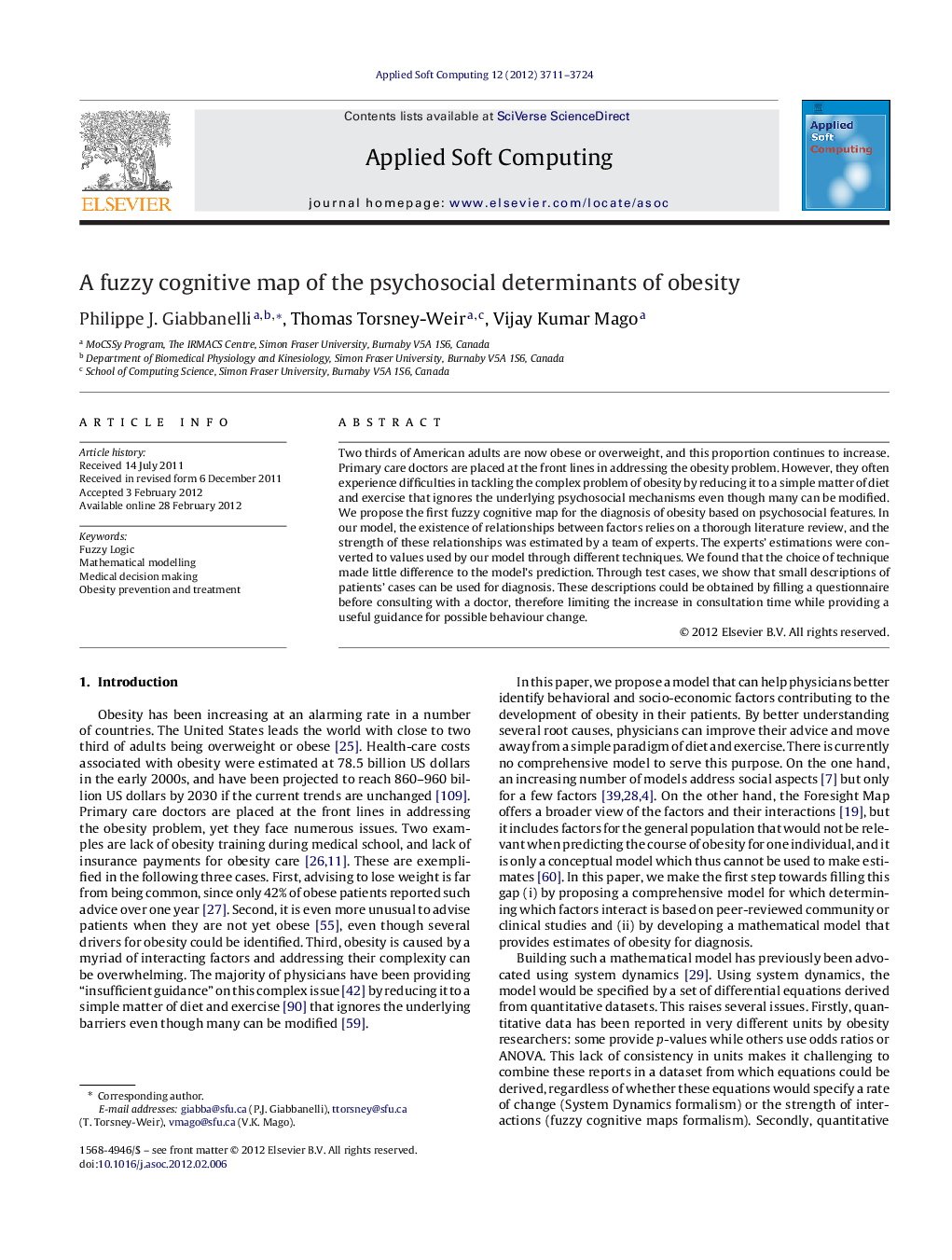| Article ID | Journal | Published Year | Pages | File Type |
|---|---|---|---|---|
| 496239 | Applied Soft Computing | 2012 | 14 Pages |
Two thirds of American adults are now obese or overweight, and this proportion continues to increase. Primary care doctors are placed at the front lines in addressing the obesity problem. However, they often experience difficulties in tackling the complex problem of obesity by reducing it to a simple matter of diet and exercise that ignores the underlying psychosocial mechanisms even though many can be modified. We propose the first fuzzy cognitive map for the diagnosis of obesity based on psychosocial features. In our model, the existence of relationships between factors relies on a thorough literature review, and the strength of these relationships was estimated by a team of experts. The experts’ estimations were converted to values used by our model through different techniques. We found that the choice of technique made little difference to the model's prediction. Through test cases, we show that small descriptions of patients’ cases can be used for diagnosis. These descriptions could be obtained by filling a questionnaire before consulting with a doctor, therefore limiting the increase in consultation time while providing a useful guidance for possible behaviour change.
Graphical abstractFigure optionsDownload full-size imageDownload as PowerPoint slideHighlights► We propose the first fuzzy conceptual map for the diagnosis of obesity based on behavioural features. ► Our model allows small descriptions of patients’ cases to be used for diagnosis. ► Our model is based on knowledge extraction using Fuzzy Logic from 7 international experts of obesity. ► The relationships in our model are broadly defined but our survey shows that experts agree well on these relationships.
